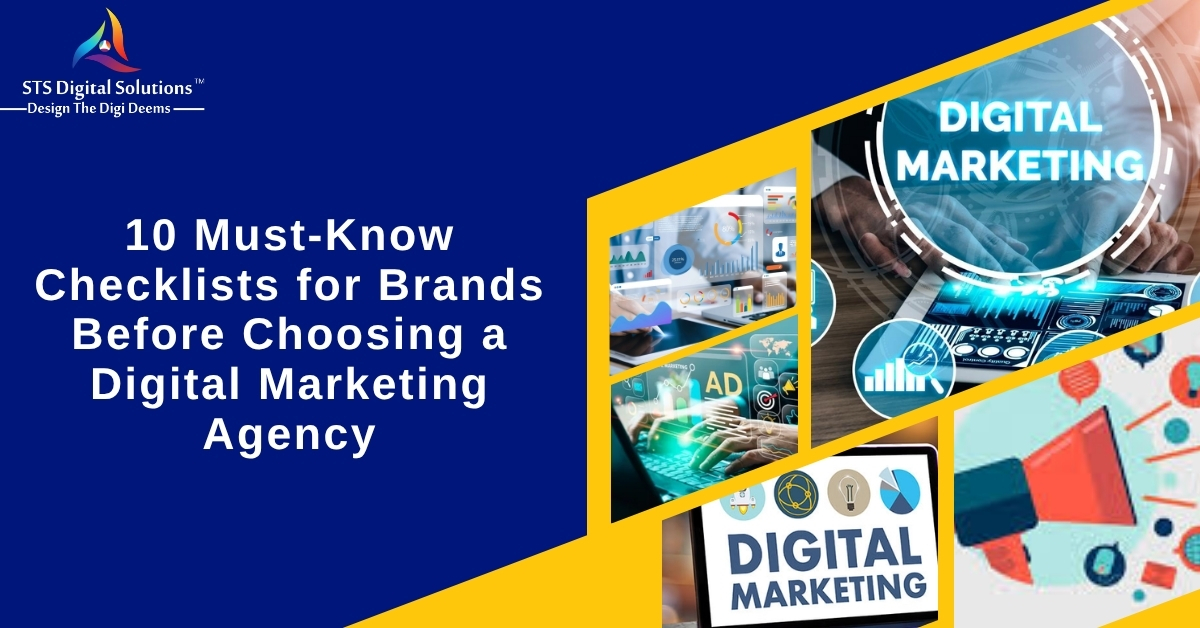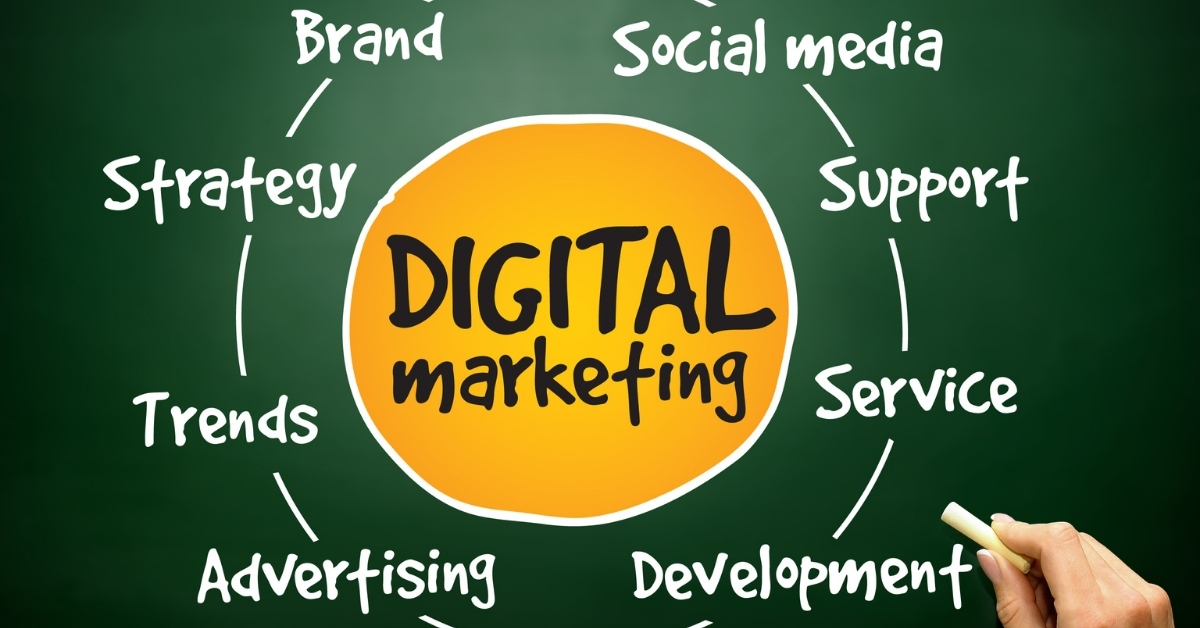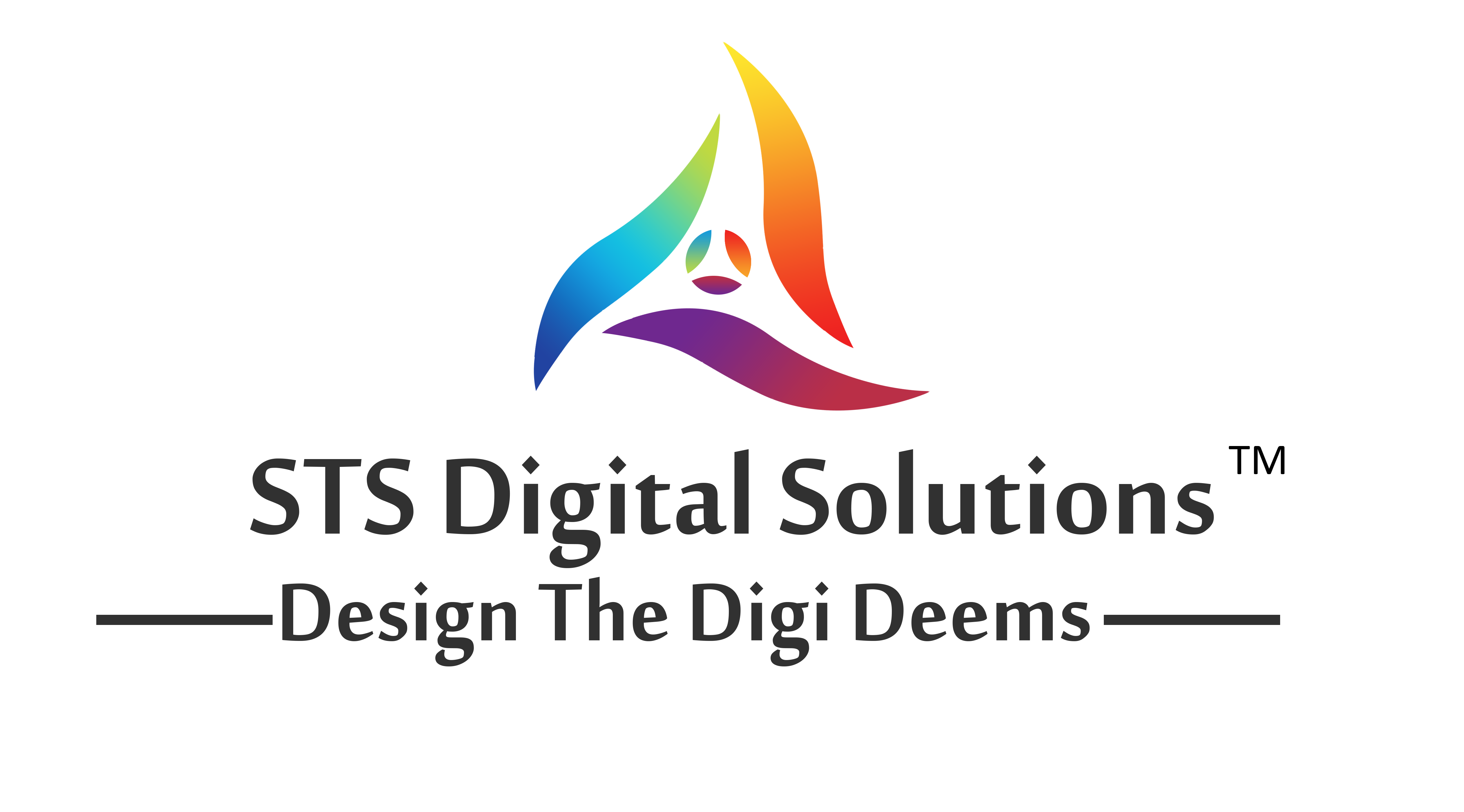10 Must-Know Checklists for Brands Before Choosing a Digital Marketing Agency

The decision of selecting an appropriate digital marketing agency is one of the most critical decisions that a brand will make in the year 2025. An agency that can be trusted is one that is able not only to increase business, but also will make sure that the marketing budget is well spent. As the digital landscape is changing at an alarming pace, including the use of SEO, social media, paid advertising, content marketing, and AI-driven campaigns, brands should be strategic in choosing agencies.
1. Clear Your Marketing Objectives
The marketing objectives of the brands need to be clear before they judge any agency. Do you want to bring more people to your website, attract leads, create more brand awareness, or sell more? Specific objectives assist the agencies in developing individualized plans and avoiding wrong alignment in expectations. When speaking of such KPIs as CTR, conversion rates, engagement indicators, and ROI, the upfront discussion will allow both parties to be on the same page and pursue measurable results.
2. Test Agency Experience and knowledge
Digital marketing agencies are not equal. Some of them are experts in the field of SEO, others in social media, paid ads, or content marketing. The brands are to check the portfolio, case studies, and client testimonials of the agency to know their expertise. Experience in the industry is also highly appreciated; agencies that are conversant with your industry will be able to foresee challenges or know which channels to adopt and how to do it in a way that will resonate with your target audience.
3. Measuring Team Competency and Structure
The competencies and team structure of the agency a key pointers of their abilities. Questions that brands should ask include the size of the team, key roles, and qualifications. An example is that a good SEO team must have strategic, content, and technical SEO professionals. On a similar note, the paid advertisement campaigns need relevant specialists in either Google Ads or Meta Ads. Knowing the team structure will also mean that your brand has professional care in all activities of digital marketing.
4. Openness in Operations and Disclosure
A good agency-client relationship requires transparency. Some of the questions that brands should pose to agencies are their workflows, project management tools, and reporting systems. Periodical updates, performance panels, and comprehensive reports regarding the campaign metrics can guide you to keep track of progress and enable you to explain investment justifications. The agencies that give open ideas of what they are undertaking and the roles they play in helping you achieve your business objectives are more reliable and responsible.

5. Check Technology Stack and Tools
The digital marketing firm of choice must take advantage of superior analytics, automation, SEO, content planning, and social media management tools. Google Analytics 4, SEMrush, Ahrefs, HubSpot, Canva, Hootsuite, and AI-based tools like ChatGPT or Jasper AI are the most efficient tools to use and are more insightful. The brands are to consider whether the agency is operating with up-to-date and relevant technologies to streamline campaigns and provide quantifiable outputs.
6. Budget Congruency and ROI Emphasis
The budget aspect is a major factor in the choice of an agency. Prior to the commencement of the project, the brands are supposed to negotiate on the cost structure, whether it is a retainer fee, project-based pricing, or performance-based pricing. Notably, the agency ought to show a definitive strategy in the way of maximizing ROI. Reduction in costs without a defined ROI is useless, and therefore, the agencies that focus on quantifiable results and define their spending are better in the long run.
7. Knowledge Communication and Support System
A marketing partnership can either work or fail due to effective communication. Brands must evaluate agencies on the communication of clients, the frequency of meetings, the availability of the point of contact, and the responsiveness. Account managers/ support teams are assigned to make sure queries are handled in a timely manner and campaigns remain on schedule. Organized communication protocols in agencies reduce the cases of misunderstandings and ensure that campaigns are aligned with brand objectives.
8. Assess Content Strategy and Creativity
Avoiding bland content and strong narration is stimulating in the current online world. Creativity, originality, and the brand voice should be evaluated in the previous campaigns of the agency by the brands. The key to attracting and retaining customers is a robust content strategy, such as blog posts, social media images, advertisement visuals, and video content. Integrated agencies have the potential to offer both effective and quantifiable campaigns.
9. Ethical Practice and Compliance Check
Ethical practices and compliance are a priority with the growth of digital marketing being more data-driven. The agencies should ensure that they comply with the privacy laws, are not using black-hat SEO, and that they are not violating the policies of the ad platform. Ethical agencies guard your brand name and secure its long-term marketing expansion without the threat of sanctions and legal actions.

10. Assessment Flexibility and Scalability
Lastly, the brands need to look at the flexibility of the agency to meet the changing goals, market trends, and campaign performance. An effective agency must be able to scale jobs, test out new channels, and think and act in real-time. Scalability means that your business can keep expanding, and the agency will be able to take care of your changing marketing requirements without any inconvenience.
Conclusion
When deciding on the appropriate Digital Marketing Agency, one should evaluate, do research, and be strategic. By adhering to these ten checklists, such as establishing clear objectives and analyzing skills, as well as a review of technology stack, communication, and flexibility, brands will be able to make intelligent choices and establish successful partnerships. We lead our brands by ensuring that we take them through a holistic approach to digitalization as we remain transparent, creative, and deliver measurable outcomes. As the STS Digital Solutions prioritizes the objectives of the clients and implements the latest tools, the businesses are guaranteed to not only grow but also profit from all of their marketing investments.
Sahil Goyal
Founder & CEO – STS Digital Solutions
Sahil Goyal is an experienced digital marketing strategist and growth leader, who has assisted some of the most successful BFSI & Healthcare, Automotive, and E-Commerce brands to attain sustainable and quantifiable digital success. Being the Founder & CEO of STS Digital Solutions, he spearheads performance-oriented actions in SEO, Digital Marketing, Social Media Marketing, Performance Marketing, E-Commerce Marketing, which assist business to create substantial online presence and generate continuous growth in revenues.
He is a pragmatic and data-driven consultant that focuses on the development of the scalable digital strategies wherein technical SEO, high-quality content, paid advertising, and performance marketing are merged. He is of the opinion that marketing should be aligned with the obvious business objectives, such as more organic traffic, stronger social media brand awareness, paid campaigns that are more ROI-friendly, or more e-commerce brands conversions.



